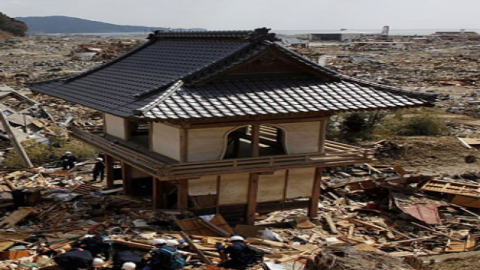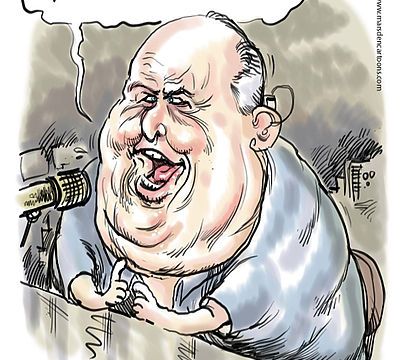Lessons from the Excessive Fear of Fukushima

A year ago a terrible earthquake, tsunami, and nuclear power disaster in Japan gripped the world’s attention for weeks. The news is already full of stories about the anniversary of those frightening events, and lessons learned. Here’s one. The word ‘Fukushima’ means something to many of us. The word ‘Tohoku’ doesn’t. Nothing could more succinctly demonstrate that human risk perception is prone to drastic mistakes, misperceptions that can ultimately create huge risks all by themselves.
Tohoku is the name of the earthquake that started everything. It was the fifth most powerful earthquake in recorded history, Richter intensity 9, just 43 miles from shore. (Check out this fascinating and dramatic video/audio simulation of the location and power of all the big earthquakes in the world last year. The Tohoku quake is at 1:51. ) It caused one of the largest tsunamis to ever hit Japan, a wave that reached heights of 133 feet. Tohoku and its tsunami killed 15,850 people, and injured 6,011. 3,287 people are still missing. Nearly 340,000 people were left homeless.
Yet if you say ‘Tohoku’ to people, most probably won’t know what you’re talking about. ‘Fukushima’, however…that’s another story. Most of the anniversary coverage in the next several days, outside Japan of course, will focus on Fukushima, which spawned so much fear. ‘Fukushima’ will ring alarm bells for a generation. Why? Certainly not from the actual risk. The death toll from radiation from the second worst nuclear disaster in history is, so far, ZERO. Low level radiation exposure increases the risk of cancer, so there may be more deaths in the future. How many? The opinion of experts is nearly unanimous, summarized in a story on the health effects of Fukushima by Katherine Harmon in Scientific American; “A year out, public health experts agree that the radiation fears were overblown. Compared with the effects of the radiation exposure from Fukushima, “the number of expected fatalities are never going to be that large,” says Thomas McKone, of the University of California, Berkeley, School of Public Health. And some, including Richard Garfield, a professor of Clinical and International Nursing at Columbia University’s Mailman School of Public Health, go a step further. “In terms of the health impact, the radiation is negligible,” he says. “The radiation will cause very few, close to no deaths.”
Experts from the Health Physics Society, the professionals trained in the biological risk of radiation, said at a recent panel “From a radiological perspective we expect the impact to be really pretty minor.’’
The radioactivity did force 80,000 people from their homes and communities, and some areas won’t be habitable for decades because the low doses of radiation on the ground are potentially harmful. The dose, and risk, are low, but enough to warrant keeping people out. What about wildlife? Studies of the wildlife near Chernobyl, the worst nuclear disaster ever, have found proliferating populations of flora and fauna thriving now that people, the biggest risk of all, are gone, with no permanent genetic damage.
There is simply no comparison in the damage between Fukushima and Tohoku. And yet the follow-on coverage of the nuclear ‘disaster’ has greatly eclipsed attention to the much bigger disaster that befell Japan that terrible day. Why? And more importantly, at what cost? the psychology of risk perception offers some intriguing answers.
Scarier, by far, than the evidence tells us the risk of radiation from a nuclear meltdown actually is. The problem, and the reason why this matters, is that fear is dangerous all by itself.
Public health officials are already seeing the same health pattern in Japan that followed Chernobyl, where a 20 year review of the health effects of that disaster by the World Health Organization found that fear did way more harm than the radiation itself. Beyond the profound psychological costs of this fear, chronic worry, even low-grade worry, causes stress, which raises the likelihood and severity of cardiovascular problems, depression, diabetes, and infectious disease, since stress weakens the immune system. In fact, a weakened immune system makes it more likely you’ll get cancer, or have a worse outcome if you develop cancer.
Beyond those direct effects, consider the threat Fukushima fear poses to public health elsewhere. Germany, Italy, and Switzerland have sworn off nuclear power (they did the same thing after Chernobyl but then came back to nuclear as an energy option), and most energy experts say there’s no way those nations can get to a clean energy future down the road without using coal, for a while at least, to make up for the watts missing from shuttered nuclear plants. Coal burning produces particulates that kill immediately, and CO2, that fuels global climate change. This in response to a risk from radiation that feels far scarier than it actually is.
And precisely because it is scarier and more dramatic, the nuclear chapter of the terrible events in Japan a year ago will get a disproportionate share of the attention in the media as this anniversary rolls around. Such coverage magnifies and reinforces Nuke-o-Noia, and worsens the problem of The Perception Gap, the gap between our fears and the facts that can be a risk all by itself. The media do not create these fears, but they surely play a role in making them worse.
At some point on March 11 we should pause, and remember, and send our thoughts and caring to the hundreds of thousands of Japanese survivors of that awful day who are still dealing with recovery. And we should reflect too on the powerful lesson that tragedy offers us all; we need to beware of the subjective, instinctive, emotional way we respond to risk, because as good a job as it’s done getting us this far down evolution’s twisting path, our risk perception system can make mistakes, and those mistakes can create perils all their own.





